Gay men in Tasmania can now get their historical gay sex convictions expunged
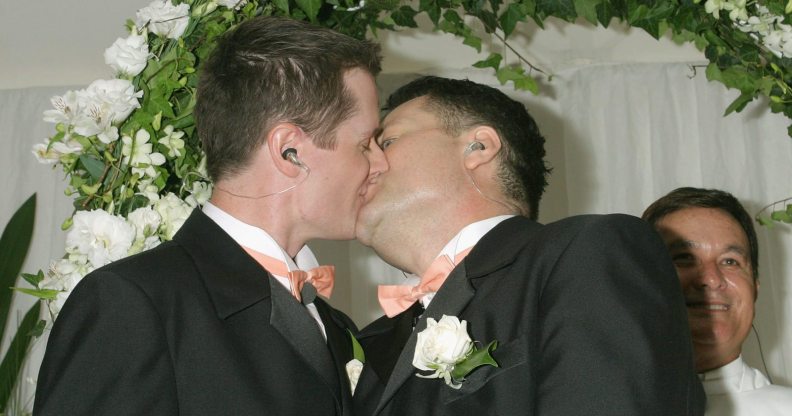
(Stephane L’hostis/Getty)
Gay men in Tasmania can now apply to have historical convictions for homosexual acts erased from their criminal records.
The process began in 2015, but it was slow going, with an apology only issued in 2017.
The Australian state of more than 500,000 people was the last in the country to decriminalise homosexuality, taking that step in 1997, and activists hailed this latest legislation as a sign of progress.
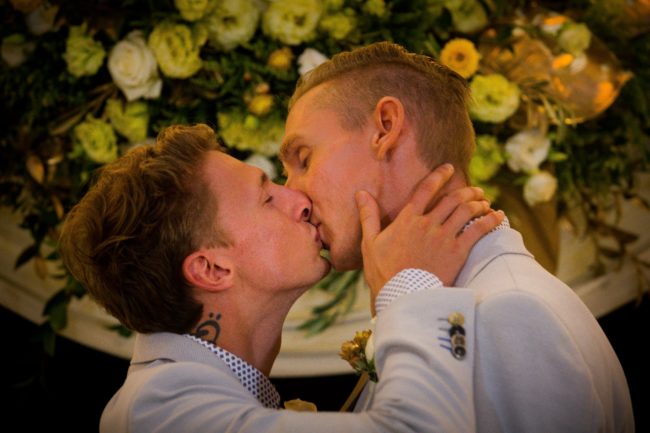
(Photo PATRICK HAMILTON/AFP/Getty Images)
Tasmanian Gay and Lesbian Rights Group spokesman Rodney Croome said: “There’s a lot of pessimism in the world today about whether social change is possible, whether we can actually change things for the better.
“And, if there’s one word that proves that we can, that things can get better, that word is ‘Tasmania.'”
Croome, who was also at the forefront of the successful push for same-sex marriage to be legalised in Australia as one of the founders of Australian Marriage Equality, said this move proved the state had changed.

Australians celebrate same-sex marriage postal vote result (Getty)
“Clearly, Tasmania has become a far more tolerant and inclusive and happier society, I think, over the last couple of decades because of the way that Tasmanians have gone from rejecting LGBTI people to embracing us and I think that’s an important story for not just the nation, but the world, to hear,” he said.
Robin Banks, a former anti-discrimination commissioner in the country, was involved in drafting the new legislation.
She said: “We went from being very much behind the eight ball, in terms of attitudes to homosexuality, to, I think, probably the most progressive state, when it comes to our response to homosexuality and to transgender issues.

(Getty)
“And I think that’s a real testament to everybody who’s been involved in the debate, particularly from the (LGBTIQ) community, reaching across what was a very wide divide.”
Banks added that the anti-gay laws should never have existed.
“It doesn’t hurt anybody,” she said. “It was a victimless crime, and that’s a really important thing to remember. And it wasn’t a crime all over the world.
“It was particularly in common-law countries, so the countries that came out of England (the British empire), where we’ve had this history of criminalising homosexuality.
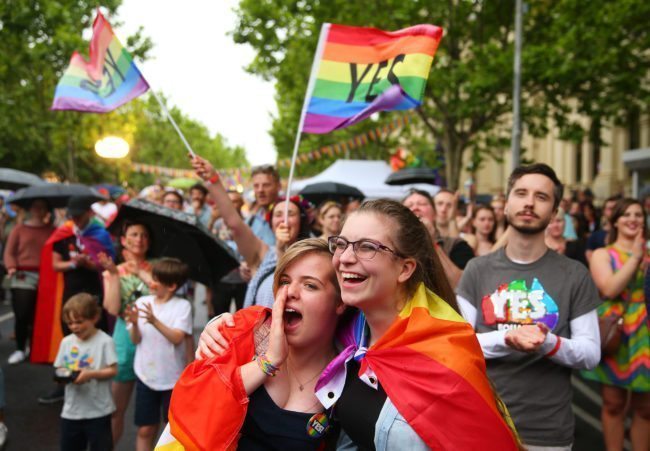
(Getty)
“I really ask people to think, ‘Well, what difference does it make to you if somebody loves a person of the same gender as themself?'”
Lee Carnie, of the The Human Rights Law Centre, pointed out that people in Western Australia and the Northern Territory still don’t have the right to get their gay sex offences expunged.
“That can still be on a criminal record, and that can mean that, for example, if you’re applying for a visa to go to the United States and they ask if you’ve ever been charged with a crime, you have to tell them about the fact that you were charged with a crime – you know, sodomy or carnal knowledge or gross indecency, these charges which are sex offences, which are taken very seriously by overseas authorities,” she said.
“And they have to explain that.”
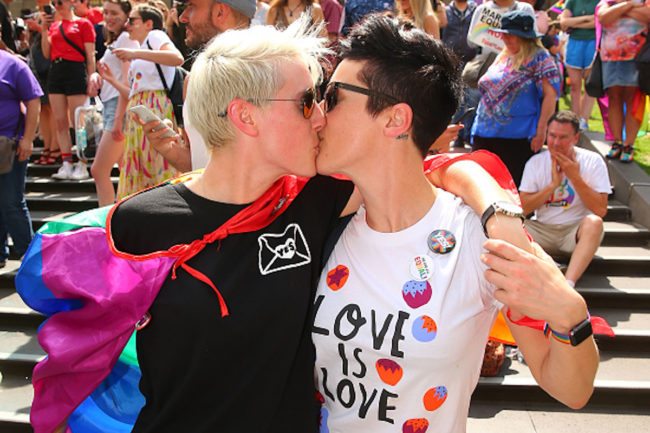
(Getty)
She added: “People have left the state and left Australia, and, you know, sadly, some people have taken their own lives, because of the effect of the criminalisation of homosexuality.
“And so it means, for the people who are still with us, a recognition that their lives should never have been harmed in that way. And that’s a pretty enormously big thing.”
The move comes the week after New Zealand’s Parliament unanimously passed a law to expunge convictions under laws that criminalised gay sex.
In 2017, the UK Government pardoned thousands of men convicted of historic gay sex offences.
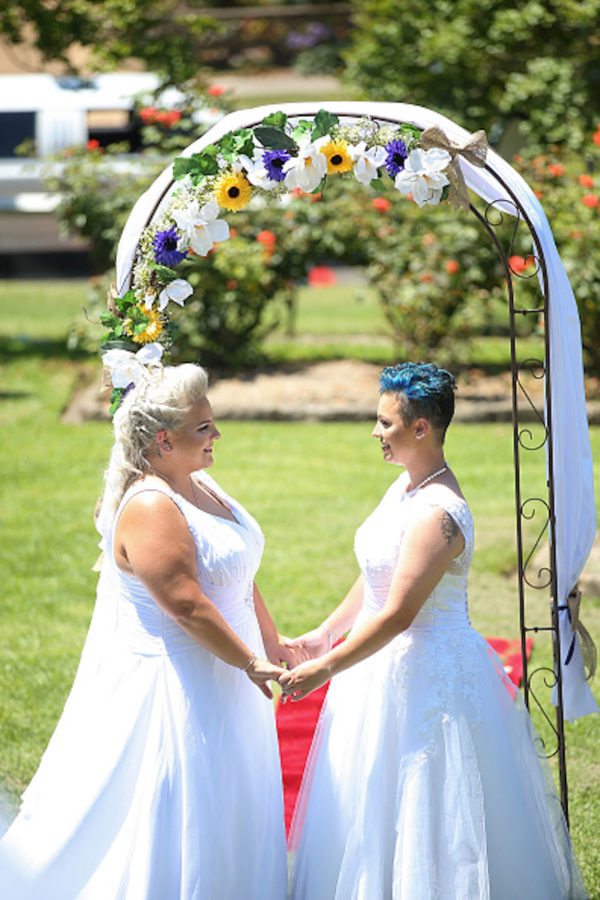
Same-sex couple Amy Laker and Lauren Price say their vows in Sydney, Australia. (Photo by Caroline McCredie/Getty Images)
Germany also rescinded the convictions of 50,000 men sentenced for homosexuality under a Nazi-era law.
The legislation set aside 30 million euros to compensate an estimated 5,000 convicted men who were still alive.
The Canadian government last year allocated $145 million to settle compensation claims from people persecuted for being gay.

(Getty)
The country’s Prime Minister Justin Trudeau apologised for the country’s historic approach to the LGBT community, which saw gay people endure purges for decades.
Scotland is also in the process of passing legislation which will pardon those convicted of historical gay sex offences.

